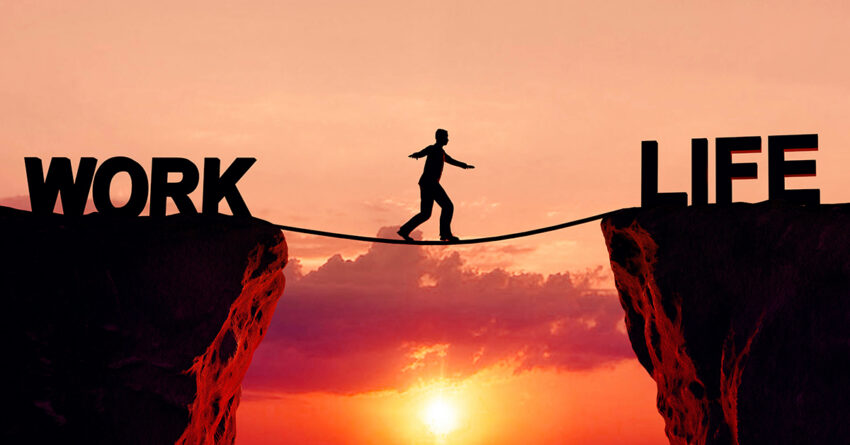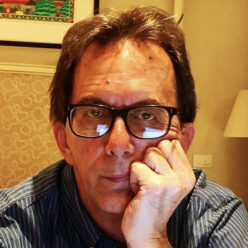“The Great Resignation” seems to have given way to “Quiet Quitting” at the worldwide virtual water cooler. It’s creating quite a stir, and a backlash too; but it doesn’t seem to me to boil down to anything too alarming. It’s got to be one of the worst slogans since “Defund the Police” or “Defund the FBI” in that it’s provocative, but doesn’t clearly communicate an idea. Such are the times.
The Wall Street Journal recently wrote that “What started as a quiet movement among office workers looking to draw firmer work-life boundaries after two years of pandemic overtime has grown into a rallying cry.” Getting out of hand, is it?
It was a post on LinkedIn that first drew my attention to Quiet Quitting. It was an article on the Moneywatch segment on CBS News, and it did not take a neutral stance. It sounded like someone was a little rattled by this new thing.

“There’s a new term for clocking in and doing the bare minimum at work: ‘quiet quitting,’” it said. “The phrase is percolating through career sites like LinkedIn, where some job coaches and executives are cautioning against the practice, and on TikTok, where workers are going viral by explaining why they’re jumping on the quiet-quitting bandwagon…”
Moneywatch acknowledged some ambiguity in the definition, but, “What everyone can agree on,” it said, “is that the term doesn’t mean that an employee has quit, but rather that they are setting boundaries at work and refusing to go above and beyond in completing their duties.”
Elise Freedman of the consulting firm Korn Ferry, defined Quiet Quitting as someone saying “I want to prioritize my well-being overall and things outside of work.”
That doesn’t seem too threatening. Or maybe it is. It seems that in its simplest terms Quiet Quitting is a shift in attitude towards work, a drawing of boundaries that leaves work at the end of an eight-hour day, and doesn’t drag it into the rest of the night.
This could play out in a variety of ways. The virulent response on the internet shows that the idea makes some people very defensive, as if it may lead to the end of civilization. Is Quiet Quitting a threat to the world order? Are we now doomed to sink into savagery?
If I believed that, I would be worried. But no, I don’t think so. I’m not someone people commonly go to for assurance that civilization will survive another century. But if it does collapse, I don’t think “Quiet Quitting” will be the reason.
A LinkedIn post by Ariana Huffington, said “Quiet quitting isn’t just about quitting on a job, it’s a step toward quitting on life…” Whoa!
She explains that she does agree with the idea of rejecting “‘hustle culture’ and burnout… But rejecting burnout doesn’t mean rejecting the possibility of finding joy in our work, loving our work… Work can give us meaning and purpose. It’s part of a thriving life.”
If Quiet Quitting means ghosting it, doing the bare minimum, instead of moving forward in your life toward work that you can be thrilled about getting up in the morning for, I see her point and endorse it. Being a half-assed slacker is as bad now as it always was.
But Quiet Quitting could also mean something quite healthy, and not in conflict with the higher values Ariana Huffington ascribes to. I’ve seen a lot of documentation to prove that a good balance between work and leisure is actually more productive than a driven lifestyle that never lets you fully relax. And the latter attitude toward work, or overwork, unfortunately, does exist in abundance in America.
I think nearly all of us in the working world have now had to grapple with the problem of where to draw the line between work and leisure. During the pandemic, the problems associated with working from home fell for the first time on a broad swath of the population all at once. And working from home does present challenges, some of which are too subtle to see until they have already taken effect. For many, if not most, it led to devoting more time to working than when they went into an office.
We’ve all had to learn a lot of lessons in this difficult period, and one lesson is that there is a point at which you need to put on the brakes, leave work behind for a while, and chill out, to allow yourself to do whatever you feel like doing—to the extent that that is possible.
In the pie graph of a 24-hour day, you can only devote so much time to work. If you chronically overwork, there will be consequences. Though you may see yourself as prodigious when you put in an enormous number of hours day after day, you could be even more productive if you honored your need for leisure.
I have seen many studies that confirm that too little leisure time leads to lower productivity and eventually to burnout.
One such study, reported in Global Health and Pharma, said, “Research indicates that adequate rest time is crucial to keep the minds of employees mentally sharp and to ensure they are happy and productive.”
Nearly half of those interviewed said they have trouble turning off work worries after hours. “This doesn’t give them the necessary break to recharge and arrive fresh in the morning. As a result, a number of workers feel consumed by their work lives, failing to focus on their families or take on a new hobby. It also means the epidemic of burnout relating to work is gaining traction”
Isn’t it great when science shows that fun and productivity actually go together?
I embrace the work ethic for which Americans are proud. We are a hard-working bunch of people. We developed a frontier. There wasn’t a lot of time to sit around. That’s a cultural mythology that drives us. But while it’s a point of pride that I devote many hours to work, it’s probably true that I would be ultimately more productive if I invested more of the time on that pie graph into something outside of the work I do for a paycheck.
Since the onset of the pandemic, I’ve had a sense that this thing was changing us more than we realize. As the period of lockdown recedes, we are returning to the world we left, and we are unconsciously expecting it to be the world we left behind. But it becomes increasingly clear that it has changed profoundly. It will be up to us to figure out how. The change is manifest, and the transformation continues even as we sit isolated in our cubicles imagining the world outside.
If this idea of “quiet quitting” refers to a return to a more balanced work life, and a higher level of productivity than that of overwork, it may have positive implications for the travel industry.
In the fog of the pandemic, the past was swept away, and everyone had a chance to stop and consider where they were and what was happening in their lives. Many people went through profound changes in their values.
Historically, Americans have been known as some of the most overworked people in the world. Europeans get several weeks of vacation time; and their people take full advantage of it to travel all over the place. I run into Europeans practically everywhere I go, and they often express their sympathy that Americans have so little vacation time. I’ve seen many studies that show the extreme difference between Americans’ attitudes toward work and those of other developed countries.
For documentation on this, I just now put “Americans don’t take their vacation time” into the Google search bar and got 3 billion results. Take your pick. It’s well documented. As stated in the Washington Post last April, “Unlike every other industrialized nation, the United States has no mandatory paid vacation or holiday leave. Workers who have paid leave often don’t take it. And even when we take leave, many of us can’t leave work behind.”
How many of us don’t even take our allotted vacation time? What I’m getting around to is that “quiet quitting” could be a good thing. It could be good for the well-being and productivity of Americans in general, as well as a healthy boost for the travel industry. What if Americans finally allowed themselves leisure time and vacations? I would see that as a good thing.
Get ready for it. I’m feeling optimistic.

David Cogswell is a freelance writer working remotely, from wherever he is at the moment. Born at the dead center of the United States during the last century, he has been incessantly moving and exploring for decades. His articles have appeared in the Chicago Tribune, the Los Angeles Times, Fortune, Fox News, Luxury Travel magazine, Travel Weekly, Travel Market Report, Travel Agent Magazine, TravelPulse.com, Quirkycruise.com, and other publications. He is the author of four books and a contributor to several others. He was last seen somewhere in the Northeast U.S.



